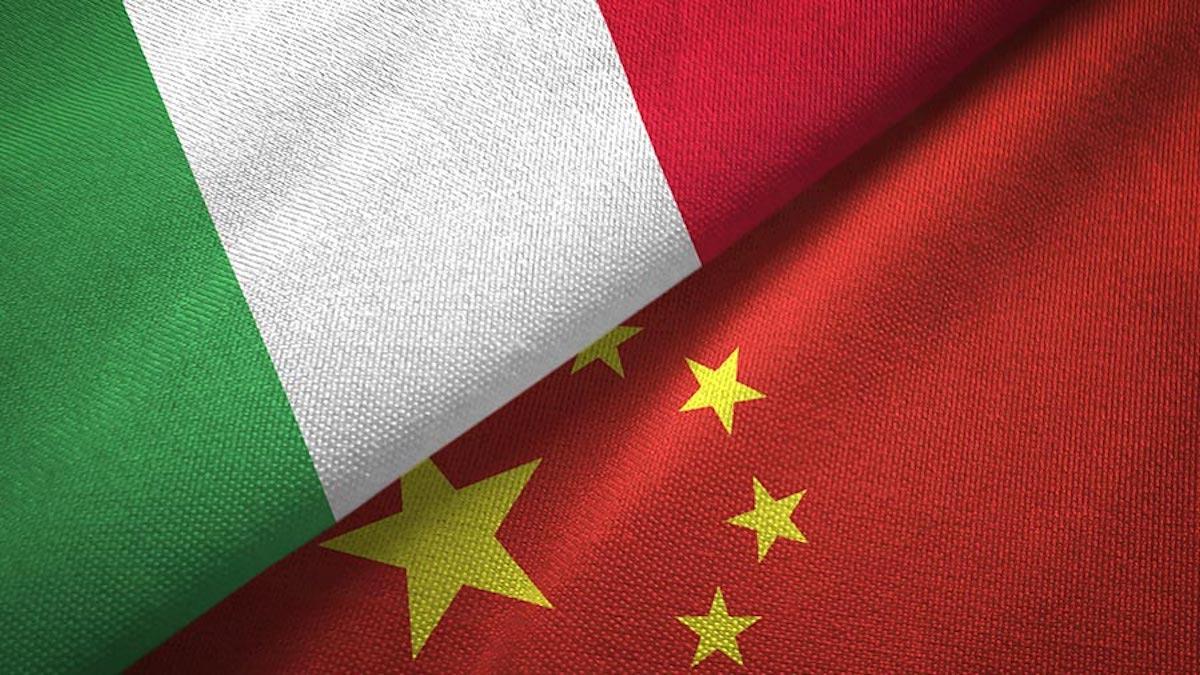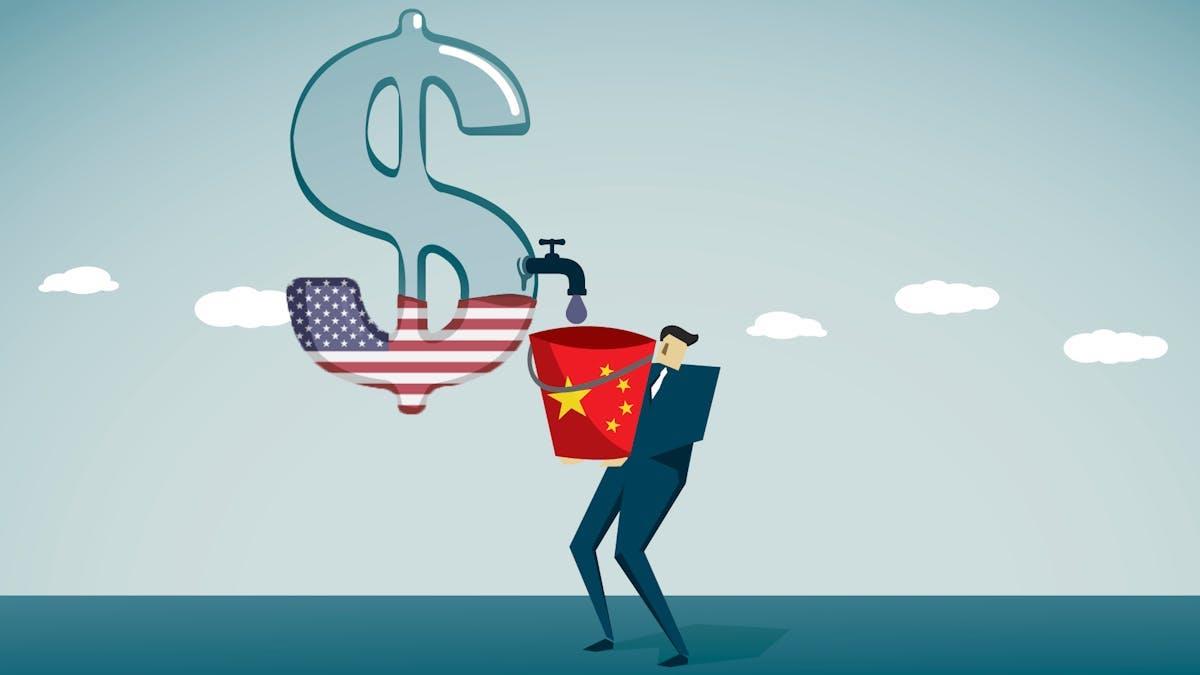BlackRock is the world's largest asset management firm with US$8.59 trillion in assets under management as of the end of 2022. It was spun off from Blackstone in 1994 and went public in 1999. MSCI is a global provider of equity, fixed income and real estate indexes, which are used by fund managers as benchmarks.
The Select Committee on Strategic Competition between the US and the Chinese Communist Party, established in January, said Tuesday it had sent separate letters to BlackRock and MSCI asking for information about their facilitation of US investments into about 50 chinese companies , which were blacklisted over claims of supporting the Chinese army or alleged human rights abuses.
On Monday, BlackRock Chief Executive Larry Fink and MSCI Chief Executive Henry Fernandez were told by lawmakers that their firms are being probed for the investments in certain Chinese companies.
BlackRock said in a statement that it complies with all applicable US laws with all investments in China. It said it will continue engaging with the House Select Committee directly on the issues raised. MSCI said on Tuesday it was“reviewing the inquiry” from the committee.
The Global Times on Wednesday criticized the US government for using human right issues as an excuse to politicise trade and investment matters and suppress Chinese firms.
The probe came ahead of US President Joe Biden's coming executive order, which will restrict US firms and funds from investing in China's semiconductor, artificial intelligence (AI) and quantum computing sectors. The order is expected to be signed later this month and will take effect from the beginning of 2024.
The Select Committee stressed that the initial review did not include one of the largest blacklists, the US Department of Commerce's entity list.
Latest stories

fear of ai in the west is misdirected

in a taiwan war seoul's problem won't be pyongyang

italy flirting with nato asia-pacific expansion
The US has put more than 1,000 Chinese companies, including ZTE, Huawei and DJI, on various sanctions lists, using national security as an rationale for clamping down on Chinese social media apps such as TikTok and WeChat, according to a report with the title“America's Coercive Diplomacy and Its Harm,” which was published by China's Ministry of Foreign Affairs on May 18.
Some commentators are worried that the United States's investment curbs will slow Chinese technology firms' expansion plans.
“China needs to catch up in many areas in the high technology sectors. In order to make some technological breakthroughs, Chinese firms have to gather enough resources,” Wu Kai, a Hebei-based technology columnist, says in an article.“The US investment curbs against China are definitely a precision strike.”
“Someone may say Chinese capital infusions can replace the American ones to make investments,” Wu said.“This view sounds reasonable but is not totally correct. China lacks not money but people who know how to invest.”
Wu says China's venture capital firms are much younger than the international ones while it's very rare to see a leading Chinese high-technology firm that is completely incubated with local funds. He says almost all famous Chinese high technology firms were groomed with foreign capital before they received Chinese investments.
He adds that foreign capital brings not only money but also investment philosophy and services, as well as new technologies, to China. He says the US companies can set up offshore units to bypass the US investment curbs if they still want to invest in China.
China's FDI
In April, US media reported that the Biden administration's investment curbs would target China's semiconductor, AI, quantum computing, new energy and biotechnology sectors. But after US Treasury Secretary Janet Yellen visited China on July 6-9, she said the restrictions will be narrowly targeted, skipping the last two sectors.
On July 25, the US Senate passed a bill that would require US firms to notify the Treasury when investing in advanced Chinese technology of national security concern. The legislation is seen as a toned-down version of the initial Outbound Investment Transparency Act introduced two years ago as it does not require review or investment curbs.
It has remained unclear how the US investment curbs will affect China's ability to attract foreign investment.
On July 19, the Chinese Ministry of Commerce avoided mentioning China's foreign direct investment (FDI) in dollar terms. It only said the FDI fell 2.7% to 703.65 billion yuan for the first six month of this year from a year earlier.
In dollar terms, that means the figure fell 8.9% to about US$102.3 billion for the period, according to a calculation made by Asia Times. It expanded from a 5.6% year-on-year drop in the first five months of this year.
In comparison, FDI grew 0.5% to US$10.02 billion in vietnam and 141% to US$10.37 billion in thailand for the same period.
Guo Tingting, vice minister of commerce, said investments coming from France, the United Kingdom, Japan and Germany to China grew 173%, 135%, 53% and 14% year-on-year, respectively, in the first half. She said foreign investments in China's high-technology manufacturing sector rose 29% for the same period.
In mid-June, a spokesperson for the Chinese commerce ministry said it would take some time for multinational firms to make their investment plans after their senior management visited China earlier this year.
BlackRock's bullish view
In March, David Solomon, managing director of Goldman Sachs, and Stephen Schwarzman, chairman and chief executive of Blackstone, visited China for the first time after the pandemic. Noel Quinn, chief executive of HSBC, and Bill Winters, managing director of Standard Chartered, also visited Beijing to attend the China Development Forum 2023 in the same month.
They met with Chinese officials but avoided publicly commenting on the Chinese economy.
On July 5, Goldman Sachs published a report downgrading five Chinese banks to“sell” ratings amid growing concerns of a local debt crisis. This research report, together with a Bloomberg report published on July 3 on the same topic, resulted in a 12-15% drop in Chinese banks' share prices.
Lucy Liu, BlackRock's portfolio manager for global emerging markets equities, said on July 11 that the Chinese stock market had been“over-punished.” She said corporate fundamentals in China were still solid while there was very little risk for the local debt issue to become a systemic problem.
On July 15, BlackRock published a report with the title“The growing opportunity in China's private markets,” saying that“China is now pivotal to all our thinking” and“it's too big of a market environment to ignore.”
“We're seeing a healthier and deeper market. Private market activity traditionally was heavily skewed toward domestic investors, but now there is a real desire to partner with international expertise as the country builds deeper and more robust markets,” it said.
read: china boosts consumption as services activity slows
Follow Jeff Pao on Twitter at
@jeffpao3
Like this:Like Loading... Related























Comments
No comment